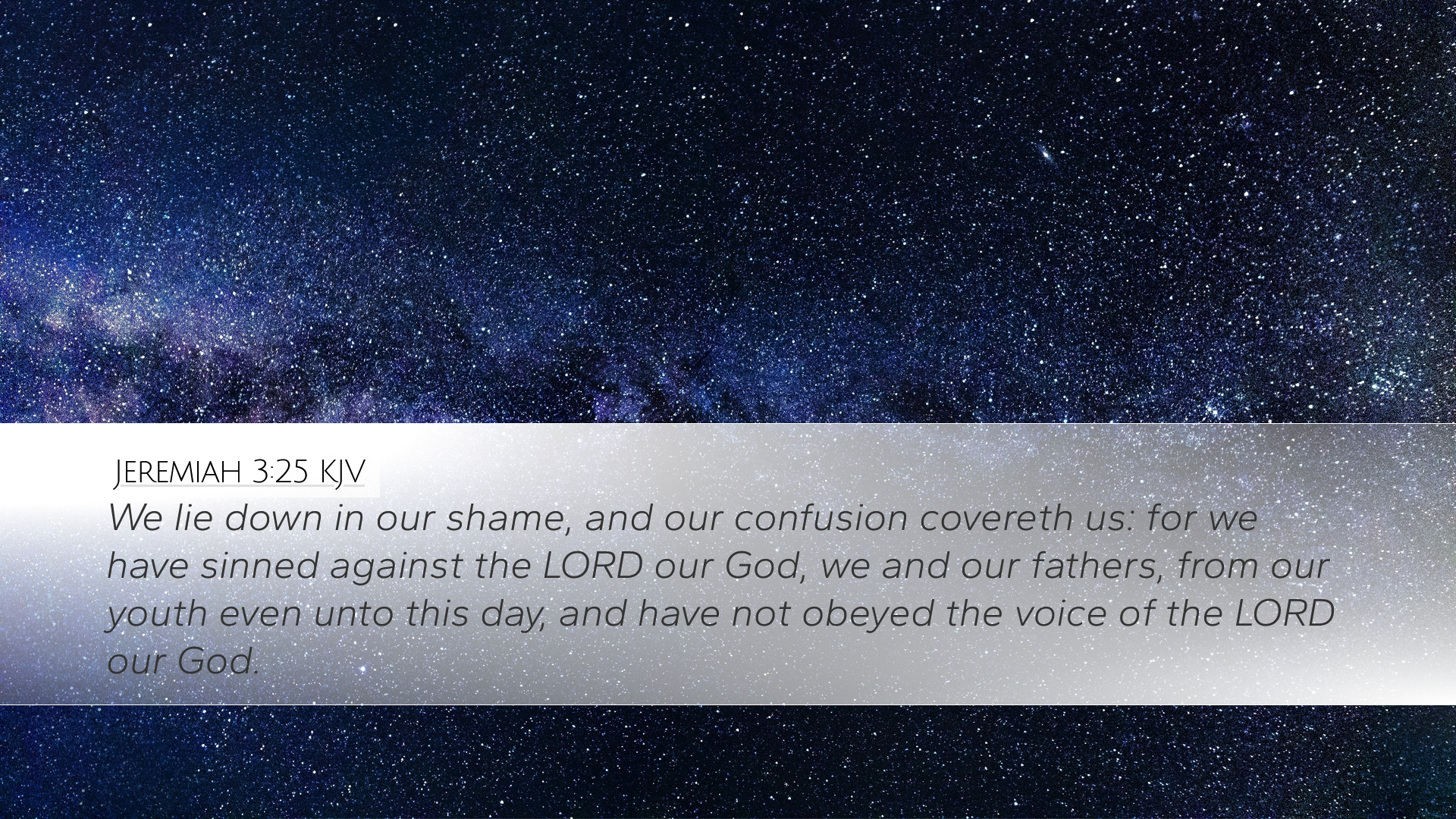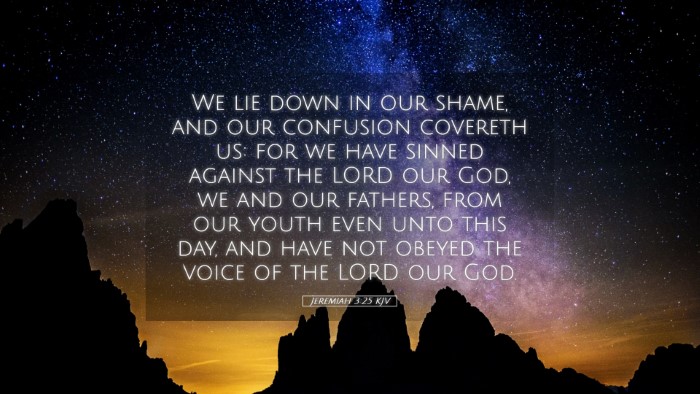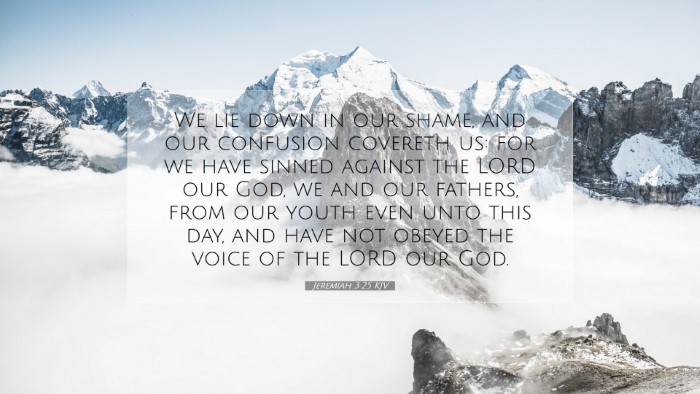Bible Commentary on Jeremiah 3:25
Verse: "We lie down in our shame, and our confusion covereth us: for we have sinned against the LORD our God, we and our fathers, from our youth even unto this day, and have not obeyed the voice of the LORD our God." (Jeremiah 3:25 KJV)
Contextual Overview
The book of Jeremiah is a profound collection of prophecies that highlight God’s judgment and call to repentance during a pivotal time in Israel's history. Jeremiah, often referred to as the 'weeping prophet', conveys the message of divine displeasure and the consequences of unfaithfulness. In this specific verse, the prophet encapsulates the deep sense of shame and the collective acknowledgment of sin, reflecting the condition of Israel's heart and relationship with God.
Commentary Insights
Matthew Henry's Commentary
Matthew Henry emphasizes the earnestness of repentance expressed in this verse. He notes that the people of Israel are depicted as lying in shame, indicating their recognition of the gravity of their sins. Their confusion and shame cover them, symbolizing the heavy burden of guilt they bear. Henry points out that true repentance involves a confession of sin not only against God but also the acknowledgment of the inherited nature of sin, as expressed in the phrase “we and our fathers.” The depth of their shame illustrates the dire need for God’s mercy and restoration.
Albert Barnes' Commentary
Albert Barnes offers a complementary perspective, interpreting the expression of shame as an important aspect of repentance. He underlines that the transgression against God was not merely an individual failing but a national one that persisted across generations. Barnes accentuates the theological implications here — that the nation’s disobedience has led to a spiritual downfall. The phrase "and have not obeyed the voice of the LORD" signals a rebellious heart, one that has consistently turned away despite divine warning. Barnes accentuates that this verse serves as a reminder of the necessity of listening to God’s voice for guidance and instruction.
Adam Clarke's Commentary
Adam Clarke provides depth by linking the shame expressed in this verse to a broader covenantal context. He articulates how Israel’s shame reflects a violation of their covenant with God. Clarke elucidates that the phrase "for we have sinned against the LORD our God" calls forth the law of retribution woven into the fabric of Israel’s history. Clarke argues that the overwhelming sentiment of shame points towards the need for grace, reinforcing the idea that while they feel unworthy, a pathway to redemption exists through sincere repentance and acknowledgment of their sins.
Theological Reflections
This verse serves multiple purposes within theological discourse. Firstly, it challenges believers to examine the reality of sin and its ramifications in both personal and communal contexts. The invocation of generational sin sheds light on the need for collective accountability among God’s people. Secondly, the emotional response of shame acts as a catalyst for genuine repentance — a crucial step in the restorative process that brings the sinner back to communion with God. Lastly, it highlights the nature of God’s justice alongside His mercy — although judgment is deserved, the heart of God longs for reconciliation with His people.
Conclusion
Jeremiah 3:25 brings to the forefront the themes of sin, shame, and the need for repentance. The echoes of Israel’s ancient calls resonate with modern believers, offering rich insights into the dynamic relationship between humanity and the divine. Pastors, students, theologians, and biblical scholars alike are urged to consider the profound implications of this verse as it relates to contemporary faith communities and the ongoing journey towards understanding God’s redemptive plan. By recognizing our shared human frailty and lifting our voices in confession, we can collectively seek the grace and mercy of our God.


